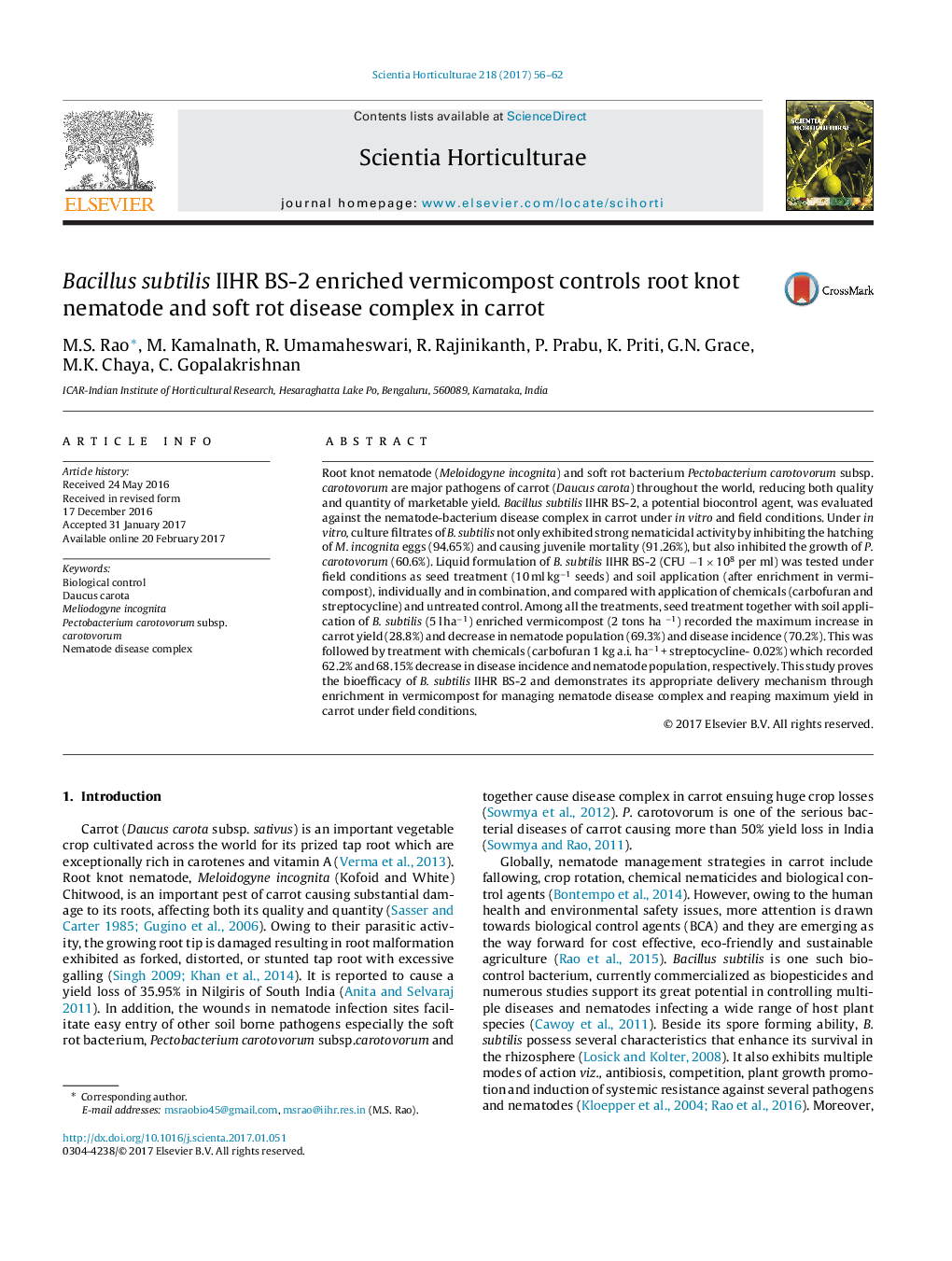| کد مقاله | کد نشریه | سال انتشار | مقاله انگلیسی | نسخه تمام متن |
|---|---|---|---|---|
| 5769527 | 1628780 | 2017 | 7 صفحه PDF | دانلود رایگان |

- Successful management for the Nematode disease complex in carrot.
- The successful combination of functional microorganisms with organic amendments for effective management of soil borne pathogens.
- It can be used in sustainable management against nematode disease complex.
Root knot nematode (Meloidogyne incognita) and soft rot bacterium Pectobacterium carotovorum subsp. carotovorum are major pathogens of carrot (Daucus carota) throughout the world, reducing both quality and quantity of marketable yield. Bacillus subtilis IIHR BS-2, a potential biocontrol agent, was evaluated against the nematode-bacterium disease complex in carrot under in vitro and field conditions. Under in vitro, culture filtrates of B. subtilis not only exhibited strong nematicidal activity by inhibiting the hatching of M. incognita eggs (94.65%) and causing juvenile mortality (91.26%), but also inhibited the growth of P. carotovorum (60.6%). Liquid formulation of B. subtilis IIHR BS-2 (CFU â1 Ã 108 per ml) was tested under field conditions as seed treatment (10 ml kgâ1 seeds) and soil application (after enrichment in vermicompost), individually and in combination, and compared with application of chemicals (carbofuran and streptocycline) and untreated control. Among all the treatments, seed treatment together with soil application of B. subtilis (5 l haâ1) enriched vermicompost (2 tons ha â1) recorded the maximum increase in carrot yield (28.8%) and decrease in nematode population (69.3%) and disease incidence (70.2%). This was followed by treatment with chemicals (carbofuran 1 kg a.i. haâ1 + streptocycline- 0.02%) which recorded 62.2% and 68.15% decrease in disease incidence and nematode population, respectively. This study proves the bioefficacy of B. subtilis IIHR BS-2 and demonstrates its appropriate delivery mechanism through enrichment in vermicompost for managing nematode disease complex and reaping maximum yield in carrot under field conditions.
Journal: Scientia Horticulturae - Volume 218, 14 April 2017, Pages 56-62